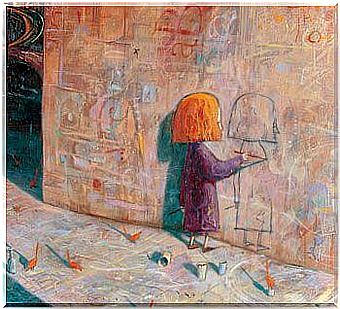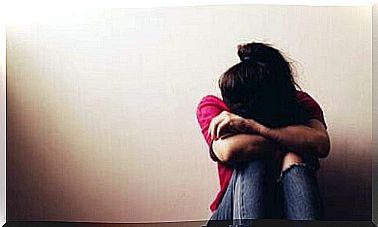Childhood Trauma And Depression In Adults
No part of life is at the same time as intense, wonderful and vulnerable as childhood is. These early experiences will forever leave a deep impression, not only on the path that our lives take, but also on the vision we gain from it.
The bond we have with those who take care of us, our parents, who can guide us, care for us and make sure we have what we need, represents the cornerstones of our development so that we have the opportunity to grow up in safe circumstances in autonomy.
But sometimes something goes wrong. If violence or accidents occur in our lives and cause the direction of our childhood to change, those traces will remain in our lives forever.
It is a fact – a reality, and as children, as people who do not yet have the ability to defend themselves or fully understand why there are evils or tragedies, we must digest everything no matter how difficult and serious it is.
Psychiatrists call these situations ” premature stress”, a label on events that are caused by physical or emotional trauma that will greatly change the direction of our development and maturity.
The wound will remain in our brains. This severe and sudden increase in stress and pain leaves an injury, which as we reach adulthood results in us being at a higher risk of developing some form of depression.

Too little affection in childhood: one of the main causes of depression
Sometimes it is not necessary for situations to become as serious as abuse or mistreatment of children in order for them to leave traces. It is often the case that children who grow up without family roots, or with parents who have not known how, or did not want to strengthen this vital bond with their children, make the children when they grow up have many areas where they lack something or have error.
A healthy, happy and complete childhood, makes the child grow up knowing that they are loved, and that through each of the steps they take, all the choices and all the mistakes they make, they always have the unconditional and unique support of their family.
The development of their self-confidence will go hand in hand with the affection they receive from others. The child will have a positive perception of themselves, because it is the reflection of what they have learned and discovered so far in life.
But if they rather experience emptiness, laughter and scorn, the child will grow up, not only marked by its insecurity, but also with a great deal of resentment and distrust.
If those who should have offered them support and unconditional love only gave them a cold shoulder and a bad attitude, it is difficult for them to be able to have a healthy relationship with another person. They become full of mistrust and fear.
Getting over a difficult childhood
Psychiatrists talk about “biological vulnerability”. It is all these traumatic or negative experiences in the past that have become part of our experiences, and are stuck in our brains.
High levels of stress change and shape many of our deepest structures, and all of this makes us more vulnerable people. People who are at greater risk of suffering from depression when they reach adulthood.
Well, this does not mean that everyone who has experienced trauma during childhood will necessarily suffer from depression? The answer to this is no. Each of us will deal with the traumas we have experienced in the past in different ways. For some people, these past events are easy to get up from, but for some they are a shock that you have to fight through every single day.
It is something to assimilate, accept and deal with so that life can give them a new opportunity, and a new chance to be happy again.
But for others, the biological and emotional burden is still too heavy a burden to bear. It’s not just about dealing with a delayed memory, but it can also have a big impact on how you relate to the world.

They may have lost faith in themselves and everything around them. They may have difficulty maintaining friendships and romantic relationships. They may long for affection, but they are unable to accept it for fear of being betrayed or harmed.
These are the profiles that can involve some form of chronic anxiety, hypersensitivity and emotional vulnerability that they need to fight against every day. Happiness in these cases, has a high price. So, how can one cope? Obviously, through effort, willpower and lots of social support.
Once someone has seen all these realities, then there is only one thing left to remember: the importance of continuing to protect children. Never think that a child is an adult in mini format.
A child is hungry for positive emotions, and needs experiences filled with unconditional affection, words and strong bonds. A child is not an adult who is able to understand why other adults treat them badly. Nor are they able to defend themselves. What happens during the years they are children will be a part of their lives forever. Never forget that.
Always take care of the little ones, and if you have been the victim of a difficult childhood, remember that happiness is not unattainable for anyone, and that it is worth it to accept and get over bad experiences, and to make a new life.
Photos: Lucy Campbell









